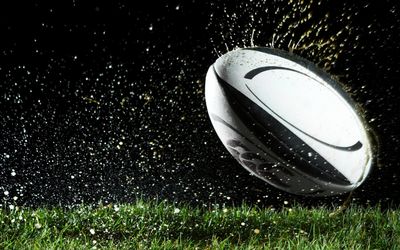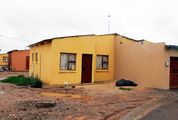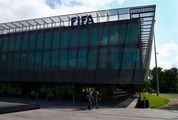THE 2015 Rugby World Cup kicks off on Friday evening, and as usual the main point of discussion in SA during the build-up to the event has been the racial make-up of the Springbok squad. This is both understandable and regrettable.
This newspaper fully accepts that addressing the injustices of the country’s apartheid past remains an imperative, but "transformation" has become a blunt political weapon in SA that is often wielded without appreciation for the damage this can cause.
Sorely missing from the "debate" that has taken place over the number of black players in the squad — just eight out of 31 — has been any attempt to arrive at a shared understanding of what transformation actually means.
Those who have been gleefully clubbing coach Heyneke Meyer over the head routinely trot out the mantra that national teams should reflect the demographics of the country, and the fact the Springbok squad does not is considered proof enough that he and the other selectors are simply racist.
But that is a lazy and mean-spirited approach that neither takes into account the reality on the field nor acknowledges the efforts that have been made by the South African rugby establishment to transform the sport.
To be fair, the biggest problem with the make-up of the Springbok squad is not that it does not reflect the demographics of the country, but that it does reflect the demographics of the range of top-tier players good enough to be practically available for selection.
Sports fans will always quibble over individual selections; that is part of the fun of being a fan.
But the fact is even if Mr Meyer were not under pressure to win every game, he would be hard-pressed to choose a competitive squad if race were elevated above ability as a selection criterion.
There are simply not enough options open to him, and this points to problems far lower in the sport’s supply chain.
The South African Rugby Union could no doubt do more to support and fast-track promising black players from club level, but the fundamental problem is that too few black children are exposed to rugby at school, and that is what must be addressed — urgently.

Picture: THINKSTOCK
THE 2015 Rugby World Cup kicks off on Friday evening, and as usual the main point of discussion in SA during the build-up to the event has been the racial make-up of the Springbok squad. This is both understandable and regrettable.
This newspaper fully accepts that addressing the injustices of the country’s apartheid past remains an imperative, but "transformation" has become a blunt political weapon in SA that is often wielded without appreciation for the damage this can cause.
Sorely missing from the "debate" that has taken place over the number of black players in the squad — just eight out of 31 — has been any attempt to arrive at a shared understanding of what transformation actually means.
Those who have been gleefully clubbing coach Heyneke Meyer over the head routinely trot out the mantra that national teams should reflect the demographics of the country, and the fact the Springbok squad does not is considered proof enough that he and the other selectors are simply racist.
But that is a lazy and mean-spirited approach that neither takes into account the reality on the field nor acknowledges the efforts that have been made by the South African rugby establishment to transform the sport.
To be fair, the biggest problem with the make-up of the Springbok squad is not that it does not reflect the demographics of the country, but that it does reflect the demographics of the range of top-tier players good enough to be practically available for selection.
Sports fans will always quibble over individual selections; that is part of the fun of being a fan.
But the fact is even if Mr Meyer were not under pressure to win every game, he would be hard-pressed to choose a competitive squad if race were elevated above ability as a selection criterion.
There are simply not enough options open to him, and this points to problems far lower in the sport’s supply chain.
The South African Rugby Union could no doubt do more to support and fast-track promising black players from club level, but the fundamental problem is that too few black children are exposed to rugby at school, and that is what must be addressed — urgently.
























